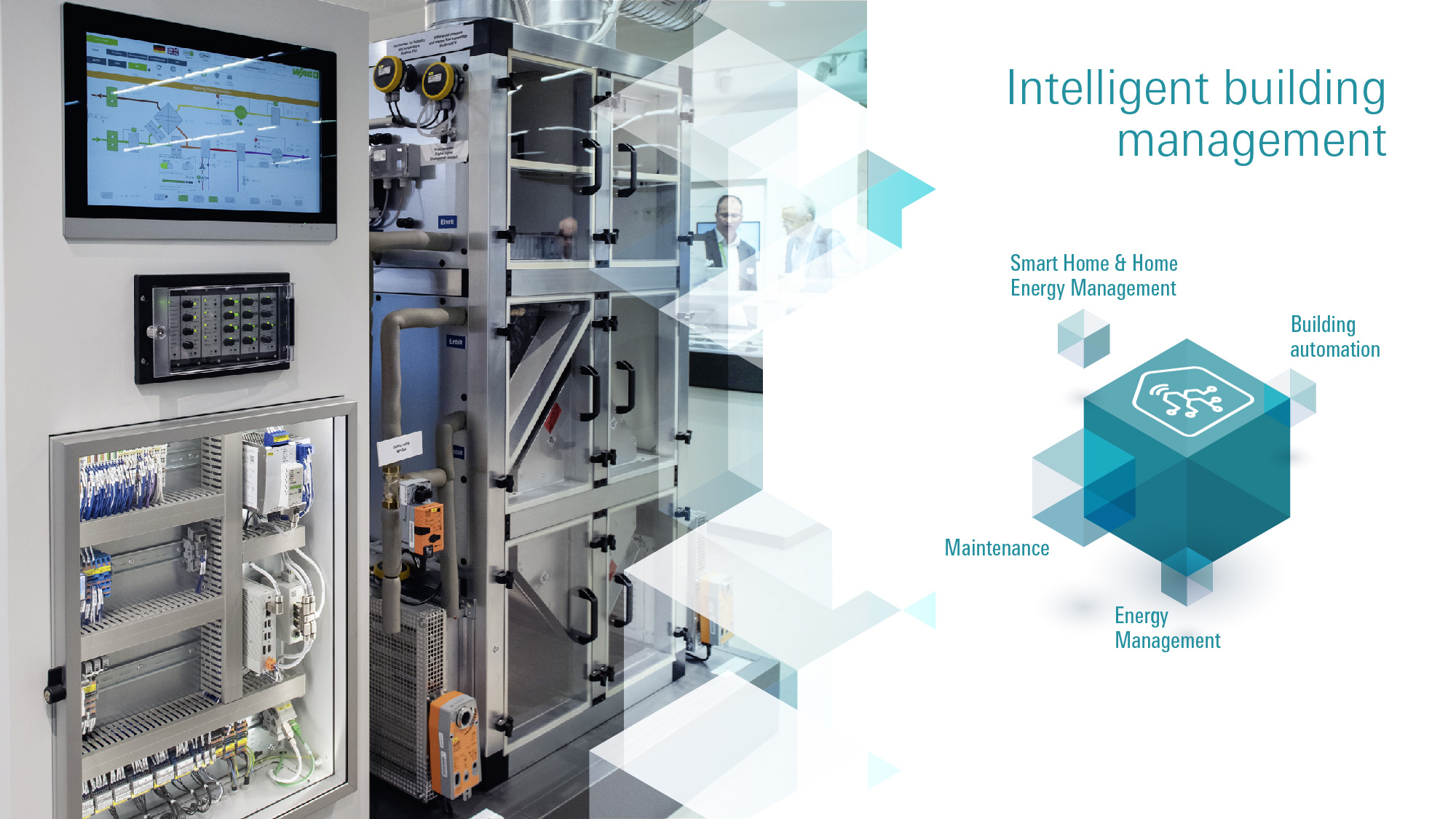Heating, ventilation, air conditioning, lighting – operating a building is an energy-intensive business. In manufacturing facilities, plant size and the number of machines increase the level of complexity. To ensure they don't lose track of what’s happening, many building operators are now using intelligent control systems.
“Using smart building-control systems is a very important lever for achieving the net-zero targets in the building sector,” says Jens J. Wischmann, Managing Director of the German Association for Energy Efficiency in Building Services (VdZ). “This is because the integration of smart building-control systems has many advantages: they ensure optimum increases in efficiency, lead to long-term cost reductions and optimise energy use and consumption.”
Artificial intelligence in energy management
Machine learning (ML), a subsection of AI, is usually used when it comes to buildings. ML uses algorithms to analyse the available data and then make predictions about energy consumption on the basis of this information. The system can also make independent decisions regarding heating, ventilation, lighting and air conditioning, as well as providing transparent insights into a property's energy data.
Additionally, building operators obtain an overview of the factors influencing energy consumption, e.g., the number of production cycles or the temperature. Thanks to the proposals for optimising or reducing energy consumption, operators can take active steps to reduce it. Moreover, intelligent software solutions can regulate the heating, ventilation and air-conditioning so that a building's energy consumption is reduced by as much as 20 percent. Naturally, this also leads to a reduction in operating costs.
Modernising or retrofitting existing buildings
There is no ‘one size fits all’ for modernising building-control systems or retrofitting equipment in existing properties. In many cases, there are no up-to-date plans of the infrastructure installed or digital models (digital twins). Structural circumstances, customer expectations and wishes, as well as the condition of the existing systems, also impact the choice of solution for the future.
By retrofitting sensors and meters for smart building control, building operators can save energy and therefore costs, even in existing buildings. Such investments can also have a positive impact on the sustainability of operations and contribute to the digitalisation of building management. And people benefit, too, from greater comfort for improved well-being or optimised working conditions.
Who is the better controller: humans or AI?
The advantage of modern control systems is that we have much more data available today than we did just a few years ago. However, evaluating and analysing this data has become much more complex and is practically impossible for humans. AI is very good at recognising patterns and identifying problems. However, AI is only a tool, not a holistic solution. Qualified specialists are still needed to solve any problems identified by AI.
VdZ Managing Director Jens Wischmann explains the situation succinctly: “AI or humans - we shouldn't see them as opposites or competitors in the field of building-services technology or beyond. It's not a question of either/or. It's about making the best possible use of artificial intelligence, to achieve the best possible interaction between humans and machines from an economic, ecological and social perspective. Creative product development, for example, can be aided by AI, but AI will not be able to replace humans when it comes to creativity and inventiveness. What the new technologies can do is support people in their work, speed up processes and shorten individual tasks. And, when all is said and done, it is people who set the framework within which AI is to be used and who take the decisions autonomously."

Smart building-control systems at ISH 2025
The seamless interconnection of devices, installations and systems via interfaces, sensors and probes is fundamental to smart building control. In the ‘Intelligent Building Management’ solution field, leading manufacturers and innovators will be presenting the latest trends and innovations in building-services technology at the next ISH from 17 to 21 March 2025. The fields covered will include smart home & home-energy management, building automation, energy management and maintenance. Further information about this solution field can be found here.
The focus of the Building Technologies & Management Forum in Hall 11.1 will be on the digitalisation of the industry, specific areas of application and application examples. The VDMA Building Automation and Controls Association (VDMA AMG) and the German Industrial Association for Building Services and Technical Installations (BTGA) have teamed up to create a platform for knowledge transfer and networking via short presentations: tailor-made for property operators, building-services planners, facility managers and local authorities.
Full details at a glance
Visitors will find a comprehensive overview of the solution fields and events, as well as exhibitor information, on the ISH 2025 website at www.ish.messefrankfurt.com
ISH – World’s leading trade fair for HVAC + Water
ISH 2025 will be held from 17 to 21 March 2025.
Information for the press & photographs:
www.ish.messefrankfurt.com/press
Social media:
www.ish.messefrankfurt.com/facebook
www.ish.messefrankfurt.com/youtube
www.ish.messefrankfurt.com/linkedin
www.instagram.com/ish_frankfurt
www.instagram.com/building.technologies.messeffm
Background information on Messe Frankfurt
Sustainability at Messe Frankfurt
